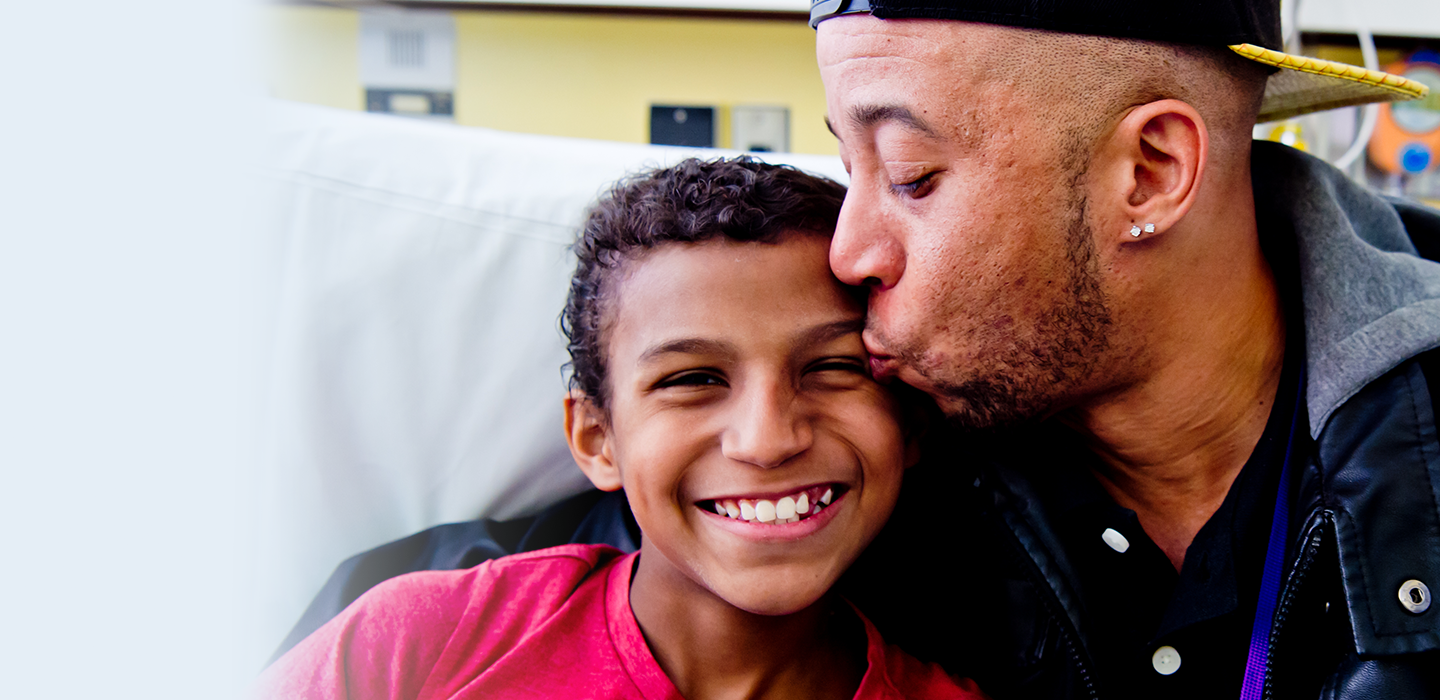
COVID-19 Resources For Parents
 As we adapt to a “new normal,” the increased stress has generated anxiety for us all – including kids.
As we adapt to a “new normal,” the increased stress has generated anxiety for us all – including kids.
Petra Steinbuchel, MD, Director of Education and Outreach for the UCSF Benioff Children’s Hospitals Child and Adolescent Psychiatry Portal, shares tips for caregivers to help kids manage stress during COVID.
7 Ways to Ease Kids’ COVID-19 Anxiety
Care for yourself, and help your children do the same. Adequate sleep, nutrition, and movement are great ways to boost immunity and decrease stress. Outdoor time in particular can help offset the limitations of “shelter in place.” Family meals, especially dinner, can offer both physical and emotional nourishment. Enlisting help with these can help everyone feel like they are contributing. Limiting your media exposure to specific times, ideally well before bedtime, can also be helpful.
Check yourself first. Verbalizing your own fears to yourself or a trusted adult will help prevent you from unintentionally passing along your anxiety to your child. Most children and teens are very resilient and do not have significant anxiety at this time.
Be honest and open with children. Use language and explanations that are appropriate to their age and level of understanding. Being honest may also mean saying “I don’t know.” Honesty helps children feel safe.
Consider your child’s temperament and developmental level. Introverted children may welcome the relative quiet of staying home more, while extroverted children may feel a much stronger urge to socialize. Children who have experienced significant hardship in the past may be more vulnerable to current stress.
Validate feelings. Take time to check-in with children about their feelings, and acknowledge these feelings by reflecting them back to the child in their own words, in a way that shows you have listened to and understood them.
Focus on what you can do. This might include leaving groceries for or sending cards to those who can’t go out. Focusing on what you can control helps decrease stress.
Be gentle with yourself and others. Everyone is under a lot of stress. Young children may have more tantrums, older children may complain more, and teens and adults may be much more irritable. Having empathy for the “why,” rather than reacting to the “what,” is crucial.

Tips for Specific Age Groups
Young Children
Children under 7 thrive on predictability, closeness to caregivers, and clear expectations. They express themselves through play and art, and their attention shifts rapidly.
Be curious and ready to answer questions. Children at this age may fear that anyone infected with coronavirus will become very ill or die. They may wonder if school closing, or not seeing their friends, is their fault, due to a tendency towards “magical thinking” at this age. They need you to explain that this is caused by germs, and that school closing is a way of helping others by preventing the spread of germs. You may also reassure them that there are many people who are working hard to help others during this time.
Routine, routine, routine. COVID-19 may have caused school and child-care closures and other disruptions. Creating a new routine at home can be reassuring and help children know what to expect in the midst of a lot of uncertainty.
Limit exposure to media and alarming conversations among adults. Young children will feel the tone and any associated anxiety but may be confused by the language, which may create even more anxiety.
School-Age Children
Children in this age group may really appreciate being with parents and caregivers, while still missing their friends and routine activities.
Set clear expectations. As with younger children, routine is best. Let them know what the schedule is for school, including breaks, but be prepared to be somewhat flexible when needs change.
Social distancing. It’s important to find ways to check in with friends and family regularly, whether that means calling or video-chatting. It does not have to mean isolation.
Adolescents
This age group seems to be struggling much more right now, which is understandable. Teens are in the process of trying to “separate and individuate” from their parents, which means spending much more time with friends.
They tend to take more risks, and they want autonomy, even if it means going against their parents’ or the government’s expectations. Because parts of their brain are developing at different rates, their reasoning may be based more on emotion than logic, and they may not feel much worry about catching or spreading COVID-19.
Stay informed together. Finding time to watch reliable media updates together may be helpful. Teens may need more information at this age in order to fully understand risks. Afterwards, you want to discuss any questions that they may have.
Set clear expectations. It’s fine to have expectations around mealtimes, minimums for academic work, and to ensure adequate sleep, as well as minimum contributions to maintaining your home.
Recognize need for physical and emotional space. This may be much stronger than for younger children, and may be increased because teens don’t have their usual time away from family while in school and other activities.
Connect before you redirecti. Because teens value autonomy so much, it’s important to connect and validate their emotions and ideas, including feeling upset about not getting to hang out with friends, do their favorite activities, or even get a haircut. You may also need to validate that not all parents are enforcing social distancing in the same way.
Invite their input into problem-solvingii. This helps support their need for autonomy and lets them “buy into” the solution. You don’t need to accept their proposed solution completely, but working together towards a solution really helps a teen feel heard, validated, and valued.
UCSF’s Department of Psychiatry has collected a number of valuable resources, including mental health & wellness apps, coping, resources for clinical anxiety & mental health issues, and practical resources for low-income and other groups: psychiatry.ucsf.edu/copingresources
i Daniel Siegel, MD, The Whole-Brain Child
ii Stuart Ablon, Ph.D., Collaborative Problem Solving